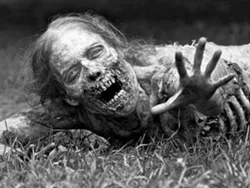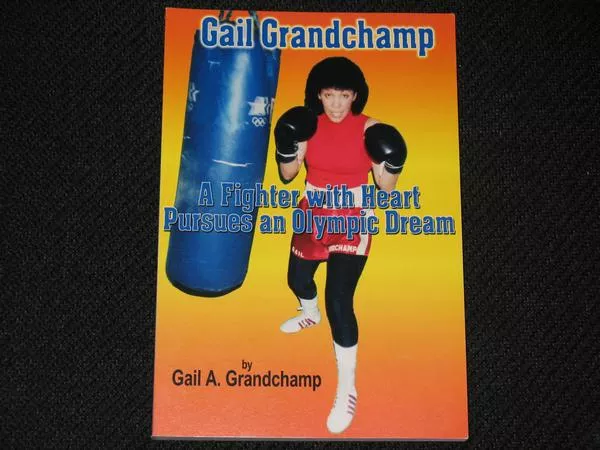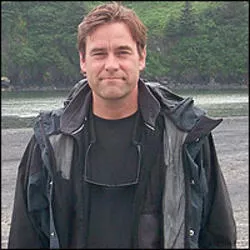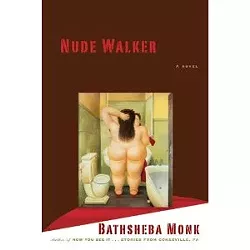Friday, April 13, 2012
Friday, February 17, 2012
Just in time for the tail end of the U.S. Olympic women's boxing team trials comes a visit from boxer, trainer and boxing club owner Gail Grandchamp. She'll be at Auntie's Bookstore tomorrow, Sat, Feb. 19, to sign copies of her memoir Fighter With a Heart.
The ladies currently fighting for a spot on the U.S. team essentially owe their careers to Grandchamp. After all, it was she who spent 8 years tangled in a court case, fighting for the right for women to box as amateurs in her home state of Massachusetts. This ruling then led to the U.S. Amateur Boxing Federation making amateur female boxing legal nationwide.
By the time the court case was over, Grandchamp had surpassed the 36 year age limit set for amateur boxers. That didn't deter her dreams though; she went on to make a name for herself as a professional boxer, earning a 12-5 record before leaving the sport in 1997.
Though she no longer fights professionally, she is never far from the ring, training young athletes in her Grandchamp Boxing Club and Fitness Center in Massachusetts.
With all Grandchamp has accomplished, could she have a more appropriate last name?
Gail Grandchamp will sign copies of her memoir Figher With a Heart Sat, Feb. 19 from 11 am to 1 pm at Auntie's Bookstore, located at 402 W. Main Ave. For more information, visit www.auntiesbooks.com or call 838-0206.
Tags: Gail Grandchamp , Auntie's Bookstore , book signing , Books , Image
Wednesday, December 21, 2011
The winning entries from our (mostly) annual Short Fiction Contest will hit Inlander racks tomorrow, but you can read all of them — including four we didn't have space to print — online now. Check 'em out.
Fiction 2011
Her Daughter
Hanging on versus moving on
By Mari Hunt
The Debt Men
The closeness between designer jeans and hypodermic needles
By Shann Ray
A Good Investment
Debt versus investing, as regards fleas
By David Skies
Don's Baby
The practical matter of resurrection
By J.P. Vallieres
Coffee and Toast
Rethinking charity cases
By Rick Boal
The Winter with Cowboy and the Mongrels of Purgatory
Art, friendship and face-eating dogs
By Mike Dragan
Untitled
Searching for place, even in bad situations
By Jordan Hartt
Tags: fiction contest , Books , Image
Wednesday, December 14, 2011
Farhad Manjoo is lighting up the comment boards on Slate.com right now with a piece advocating the death of independent bookstores. Manjoo, Slate's technology writer, is responding to a Monday New York Times op-ed written by novelist Richard Russo, who decried Amazon.com's ruthless commercial practices and suggested they were killing the country's local literary sub-cultures.
Manjoo expresses disdain for the retail giant's more aggressive business tactics but argues that Amazon's cheaper prices, sophisticated recommendation engine and Kindle options are actually breathing new life into the book world, and that readers and writers alike should be happy about that.
"Sure, Amazon doesn’t host readings and it doesn’t give you a poofy couch to sit on while you peruse the latest best-sellers," he writes. "But what it does do —allow people to buy books anytime they want — is hardly killing literary culture. In fact, it’s probably the only thing saving it."
Question: Newspaper budgets have been slashed over the last decade because Craigslist found a better way to deliver classified ads. Travel agencies have shuttered because the Expedias and Travelocitys of the world put those services directly in consumers' hands. So are local bookstores just the next industry to be outsmarted, or do they offer a value that Amazon can't match? If so, will that value be enough to save them?
Thursday, October 20, 2011
Space is devoid of the things we need to live and thrive: air, gravity, hot showers, fresh produce, privacy, beer. How much can a person give up? How much weirdness can they take?
In her most recent book, Packing for Mars: The Curious Science of Life in the Void, best-selling author Mary Roach explores what happens to your body when you can’t walk for a year, what happens if you vomit in your helmet during a space walk, how space agencies simulate space travel here on Earth, and many other fascinating aspects of life in space.
Roach’s previous works include Stiff: The Curious Lives of Human Cadavers, Spook: Science Tackles the Afterlife, and Bonk: The Curious Coupling of Science and Sex.
As part of the 10th annual Spokane is Reading event, which was started to inspire conversation among readers and encourage more adults to read, Roach will be in Spokane for two presentations on Oct. 20. She will read from Packing for Mars, share stories, answer questions, and be available for book signing at the Garland Theater at 1 pm (327-1050) and at the Bing Crosby Theater at 7 pm (227-7638).
Monday, April 11, 2011
Tags: books , The Big Read , Get Lit , Image
Thursday, March 31, 2011
Local bibliophiles continue to laser in on Tim O'Brien before his April 16 appearance here as part of Get Lit! For more details, visit ewu.edu/getlit and neabigread.org.
Book Discussion
Tonight from 7-9 pm
Discuss Tim O'Brien's Vietnam War novel, The Things They Carried, at the Barnes & Noble Bookstore just east of the Spokane Valley Mall.
Book Discussion
Sunday, April 3, from 5-6:30 pm
EWU students will discuss O'Brien's novel.
Morrison Hall, EWU campus, Cheney
Book Discussion
Tuesday, April 5, from 6-8 pm
Military personnel will discuss O'Brien's novel at Fairchild Air Force Base.
FAFB Library
Operation Homecoming: Writing the Wartime Experience
Wednesday, April 6, from 6:30-8:30 pm
This film documentary is based on the experiences of soldiers and Marines in Iraq and Afghanistan.
Moran Prairie Library, 6004 S. Regal St.
A Piece of My Heart
Thursday, April 7, from 7-9 pm
Shiro Lauro's drama — the most frequently produced play about the Vietnam War — will be performed readers-theater style at Whitworth University. It's about women who served as nurses in-country.
Whitworth, Weyerhaeuser Hall, 300 W. Hawthorne Rd.
Book Discussion
Monday, April 11, from 6:30-8:30 pm
Discuss O'Brien's novel; open to the public.
South Hill Library, 3324 S. Perry St.
Tags: Tim O'Brien , Books , Image
Monday, March 21, 2011
You’ve got three and a half weeks to read Tim O’Brien’s Vietnam War novel, The Things They Carried, before O’Brien himself will appear at the Bing as part of Get Lit!
In the meantime, there are lots of events this week in connection with the Big Read.
And what's that, you ask?
The Spokane version of the Big Read 2011 — a nationwide event, sponsored by the National Endowment for the Arts, which encourages entire cities and smaller communities to read and enjoy the same book, more or less simultaneously — is focusing, this month and next, on O’Brien’s semi-autobiographical account (which was first published in 1990). Here's some of what's coming up this week:
Platoon
To get a view of Vietnam that’s complementary to O’Brien’s vision, watch Oliver Stone’s 1986 film (starring Tom Berenger, Willem Dafoe and yes, a much younger Charlie Sheen). Downtown Library, 906 W. Main Ave. Wed, March 23, from 5:30-7:30 pm
Discussion panel on The Things They Carried
Experts about such topics as disabilities, engineering, media and military affairs will share their perspectives. EWU Riverpoint Campus, Phase One Building, Room 122. Wed, March 23, from 6-8 pm
Book discussion at Veterans of Foreign Wars Post 51
A U.S. Navy Hospital Corpsman will lead a discussion, open to all ages and backgrounds. VFW, 300 W. Mission Ave. Fri, March 25, from 5-7 pm
“Things We Still Carry: Veterans Reflect on the Big Read”
Two Vietnam vets and two Gulf War vets, all members of the Spokane chapter of Veterans for Peace, share their perspectives on O’Brien’s novel. Community Building, 25 W. Main Ave. Fri, March 25, from 7-8:30 pm
VETS: Portraits of Veterans and Their Stories
John Thamm shares his book as poets and visual artists provide additional perspectives. Visit johnthammstudios.blogspot.com. J.F. Thamm Gallery, 11 S. Washington St. Sun, March 27, from 3-5 pm
The American Experience: My Lai
An 80-minute documentary examines the 1968 massacre through the eyes of survivors on both sides; a panel discussion follows. Moran Prairie Library, 6004 S. Regal St. Wed, March 30, 6:30-8:30 pm
Book discussion at Barnes & Noble (Spokane Valley)
Everyone’s welcome in the cafe to discuss O’Brien’s novel. 15310 E. Indiana Ave., in the Market Pointe Shopping Center, Spokane Valley. Thurs, March 31, from 7-9 pm
Book discussion for EWU students
Student-led discussion of The Things They Carried. EWU, Morrison Hall, Cheney. Sun, April 3, from 5-6:30 pm
Fairchild AFB book discussion
For military personnel only. FAFB library. Tues, April 5, from 6-8 pm
Visit neabigread.com or ewu.edu/getlit, or write dward@ewu.edu or call 359-6977.
Tags: books , Tim O'Brien , Image
Tuesday, February 22, 2011
Books available over the next three weeks include a coming-of-age novel, an investigation of information systems, a road trip through Scotland, and a naturalist's view of the Pacific Northwest.
The Information: A History, a Theory, a Flood, by James Gleick (Pantheon, 540 pages, March 1)
For thousands of years, every utterance died the moment it was made. Then we created alphabets, and information spread slowly. Now we're drowning in it. Gleick (Chaos, Genius) posits that history is the story of information becoming aware of itself.
Pym, by Mat Johnson (Spiegel & Grau, 330 pages, March 1)
Edgar Allen Poe's 1838 novel is about a stow-away on a whaling ship who encounters mutiny and cannibalism before being rescued by a tribe of Africans and continuing his voyage toward the South Pole. Johnson's riff on Poe becomes a wide-ranging satire on American culture and race relations.
Rodin’s Debutante, by Ward Just (Houghton Mifflin Harcourt, 270 pages, March 1)
A coming-of-age novel set in northern Illinois and Chicago in the 1910s-'40s. A kid goes to a boys’ school endowed by a robber baron, becomes involved in football, sculpting and his studies — and also gets entangled in the aftereffects of a horrific sex crime committed during in the Depression. This is Just's 14th novel.
Tiger, Tiger: A Memoir, by Margaux Fragoso (Farrar, Straus and Giroux, 330 pages, March 1)
A chilling account of how her life was controlled by a pedophile for 15 years, starting in 1985, when she was 7.
The Terrible Privacy of Maxwell Sim, by Jonathan Coe (Knopf, 330 pages, March 8)
He doesn’t get along with his father, wife, daughter or friends. So naturally, he goes on an eccentric road trip to Scotland — during which he feels closest to his car’s GPS voice. A commentary on lack of communication in an instant-communications era.
I Am the Market: How To Smuggle Cocaine by the Ton, in Five Easy Lessons, by Luca Rastello; trans. from Italian by Jonathan Hunt (Faber & Faber, 180 pages, March 8)
The real action in cocaine smuggling is by the ton, so forget about some drug mule with capsules in her stomach. How can you move that much white powder? Conceal it in electric cables and liquids inside the shipping containers of reputable companies. Bribe officials. Bribe crane operators. Provide your own sniffer dogs. And send out mules, hoping they'll get arrested (as diversions).
Three Stages of Amazement, by Carol Edgarian (Scribner, 300 pages, March 8)
Her husband has just moved their family to San Francisco and founded a surgical instruments company. But funding is difficult. She has her hands full with an unhealthy child, too — and then the relative she hates turns up offering starter money to her husband's new firm. This is Edgarian's second novel after Rise the Euphrates (1994; about three generations of Armenian-American women).
In Earshot of Water: Notes on the Columbia Plateau, by Paul Lindholdt (Univ. of Iowa Press, 160 pages, March 16)
Like an Annie Dillard, Loren Eisley or John McPhee of the Pacific Northwest, Lindholdt covers our corner of the country — flora, fauna, people — by incorporating Lewis and Clark, Capt. James Cook and Bureau of Reclamation records into impressive prose.
Tuesday, February 15, 2011
Books coming out in the next couple of weeks include the third autobiography of a famous actress; novels about wealthy immigrants in a Rust Belt town, London teachers and detectives being bullied, and a housecleaner who opens a stud service; and nonfiction about how nuclear bombs are going to kill us all.
And Furthermore, by Judi Dench (St. Martin's Press, 290 pages, Feb. 15) A follow-up to Judi Dench: With a Crack in Her Voice (1998) and Scenes From My Life (2001), this is a partial, somewhat reticent autobiography of Britain's theatrical and cinematic Dame (many roles with the RSC, along with Notes from a Scandal, Shakespeare in Love, and, of course, six James Bond movies as 'M').
The Long Road Home: The Aftermath of the Second World War, by Ben Shephard (Knopf, 500 pages, Feb. 22) At the end of the war, perhaps as many as 15 million Europeans were wandering around without a place to go. American organizers assumed they'd all just want to go home — but Russians and Ukrainians were terrified about living under Stalin. The suffering and the poverty didn't end in April 1945: Two years later, just as the Marshall Plan was getting started, there were still a million people in refugee camps.
The Philosophical Breakfast Club: Four Remarkable Friends Who Transformed Science and Changed the World, by Laura J. Snyder (Broadway, 450 pages, Feb. 22) Two centuries ago, four Cambridge students — an economist, an astronomer, a mathematician and a polymath who knew about everything from geology to moral philosophy — used to get together, often get drunk, and ramble on about ideas that still have an effect on our attitudes today toward practical economics, computer science, and the interconnections between religious faith and Darwinism. Snyder has produced a kind of quadruple biography of early Victorian scientists.
Minding Frankie, by Maeve Binchy (Knopf, 400 pages, March 1) An entire neighborhood of eccentric Dubliners help a single father raise a boy — which works just fine, until a social worker butts in. (Binchy’s Tara Road, about Irish and American women swapping houses for the summer, was anointed by Oprah back in 1999.)
Nude Walker, by Bathsheba Monk (Sarah Crichton Books, 320 pages, March 1) In this novel, a Lebanese industrialist tries to revive a dying Rust Belt town in Pennsylvania. Kat is the granddaughter of one of the town's old guard; when she returns from National Guard duty in Afghanistan and announces that she has fallen in love with the much-resented industrialist's son, both of their families line up in opposition.
How the End Begins: The Road to a Nuclear World War III, by Ron Rosenbaum (Simon & Schuster, 320 pages, March 1) There are nuclear bits and pieces floating all over Russia and Pakistan. You think there aren't any religious zealots who could get their hands on them and start a regional nuclear war that could escalate into a worldwide holocaust? Even in the U.S., our nuclear command and control is so "rickety" that it has, every year, a 1 percent chance of failure. And Rosenbaum doesn't like our chances: "It's all about luck now," he says. "I'm a pessimist."
Cleaning Nabokov’s House, by Leslie Daniels (Touchstone, 330 pages, March 1) Reduced to housecleaning after losing custody of her kids, Barb finds some index cards. Are they an unpublished Nabokov novel about Babe Ruth? Maybe, maybe not. So Barb cheerfully opens a cathouse and regains her self-respect. Will she also regain her kids? Will the novelist be able to temper all the wackiness?
A Thousand Cuts, by Simon Lelic (Viking, 300 pages, March 4) A detective investigates a school shooting. Was it the teacher who was being bullied? Lelic switches points of view — kids, cops, teachers, administrators — to give the narrative a personal feel. In addition, back at her London precinct, the female detective is herself being bullied.












